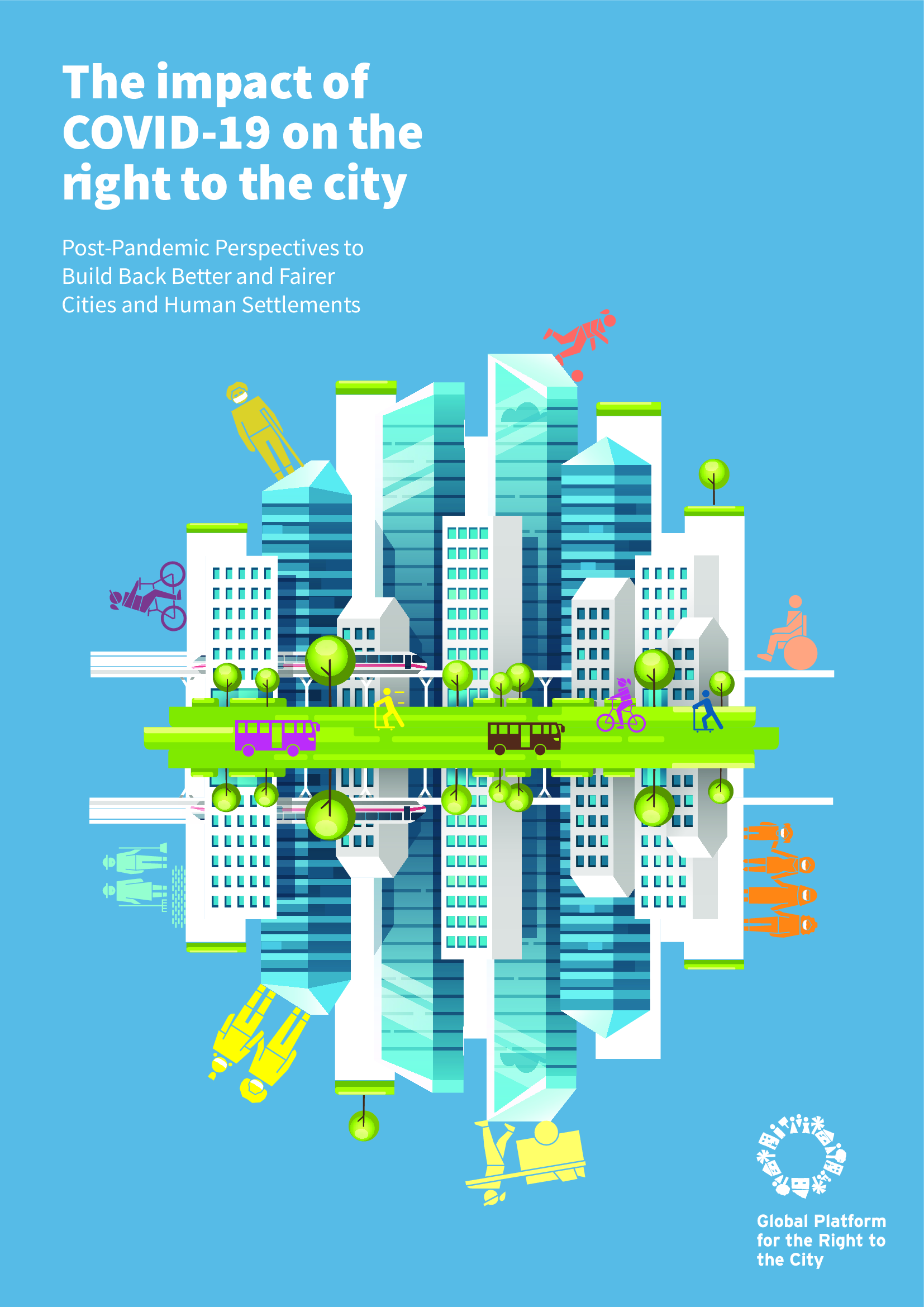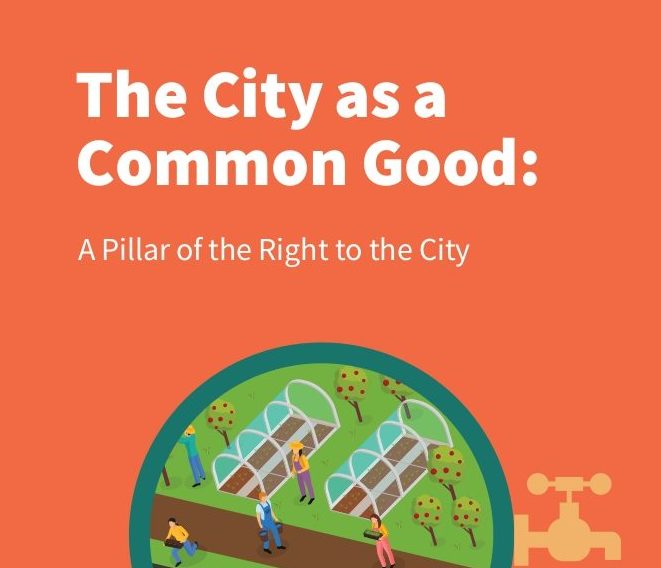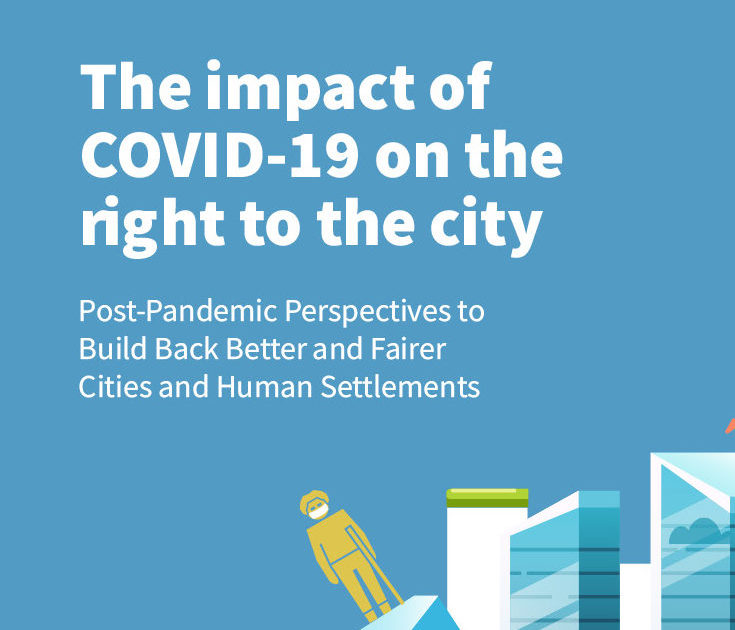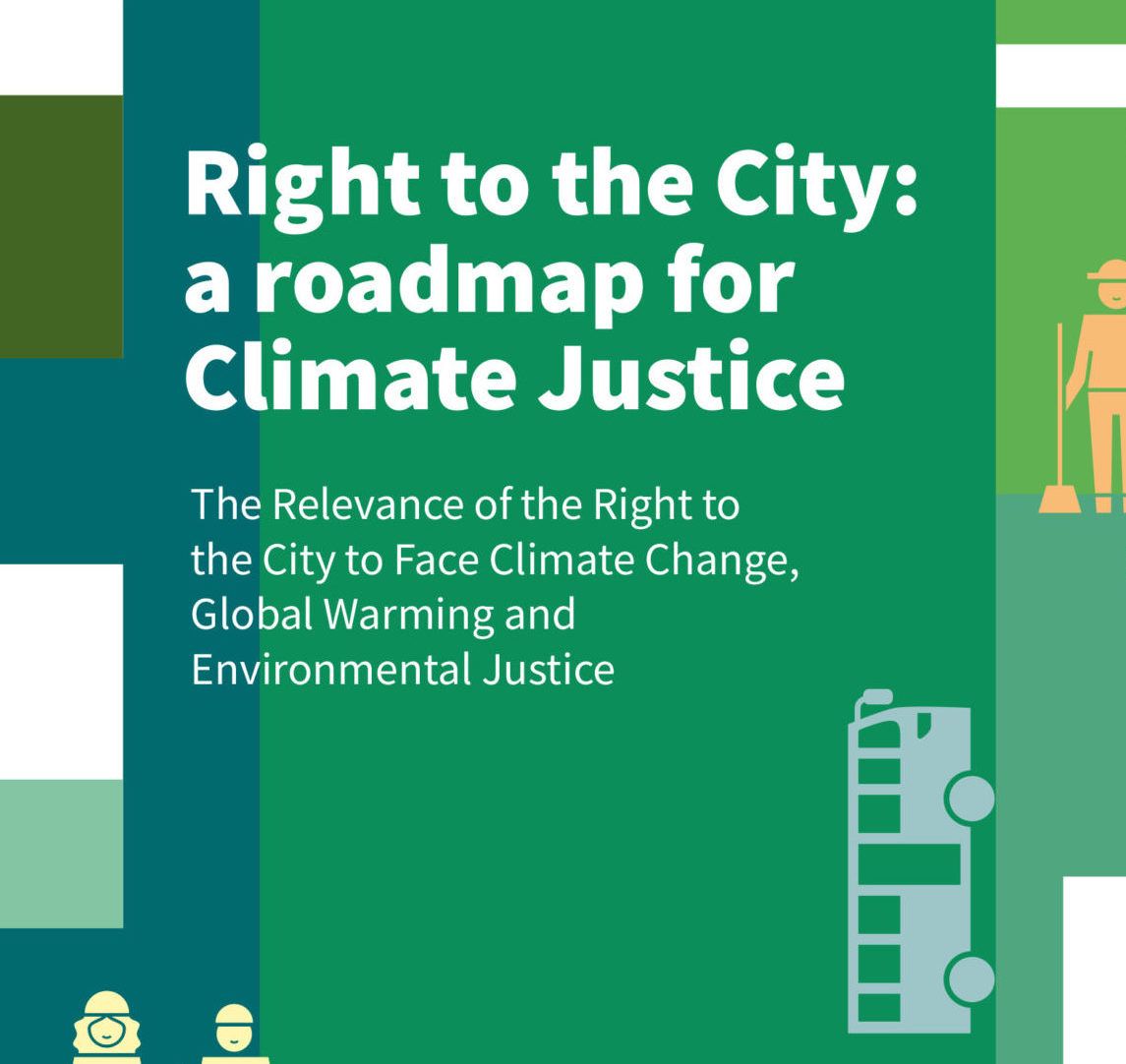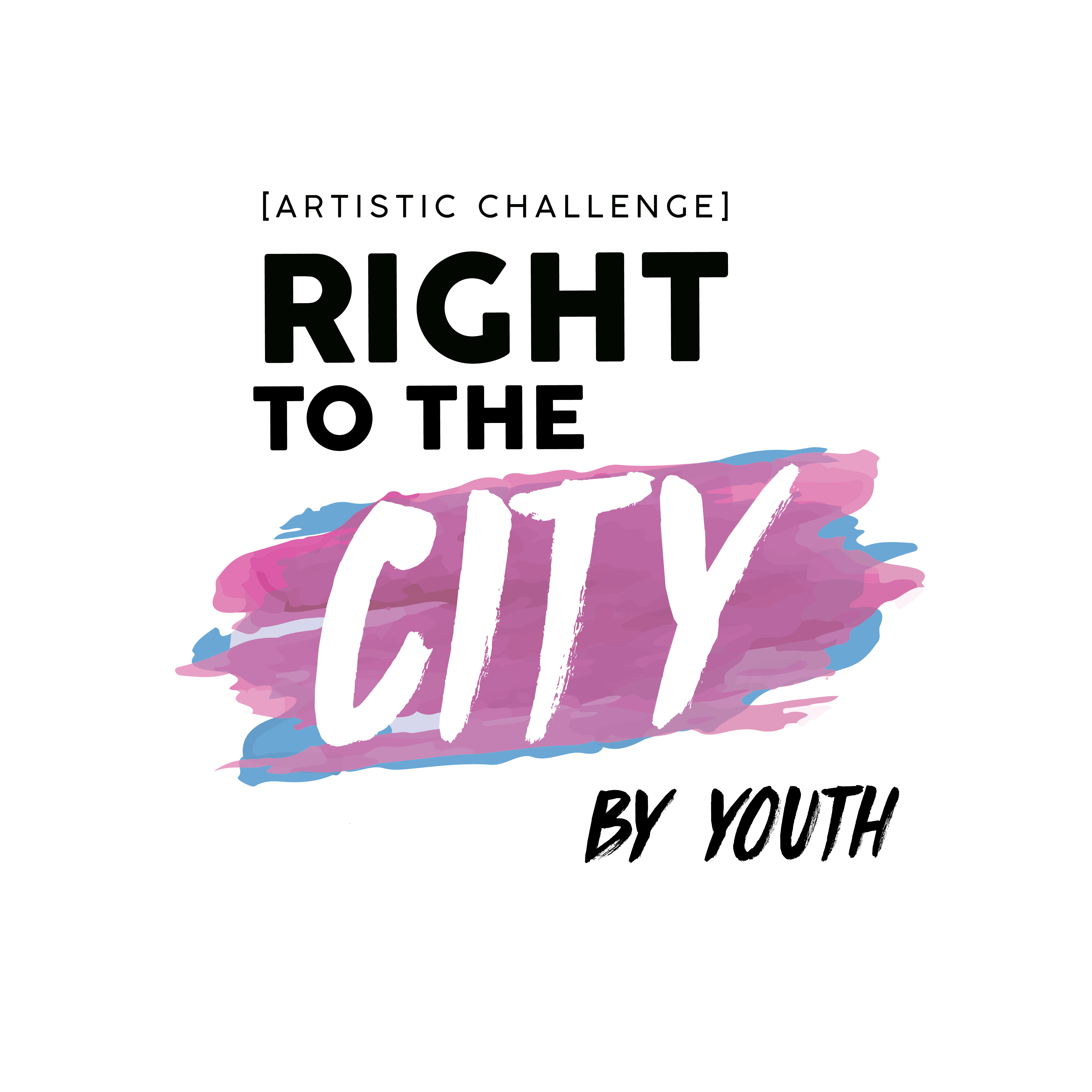Post-Pandemic Perspectives to Build Back Better and Fairer Cities and Human Settlements
%
covid-19 cases have been reported in cities
%
(up to) higher death rates among black communities
million people more in situation of "extreme poverty"
In a year again starkly marked by the impacts of the COVID-19 pandemic, the Global Platform for the Right to the City takes this Urban October to reflect on the impacts of the COVID-19 crisis on our Right to the City and the possible pathways for the long term protection and implementation of the Right to the City that have emerged through the mobilization of civil society and public actors.
This World Day for the Right to the City the Global Platform for the Right to the City is launching a collective declaration and the Thematic Paper on the impacts of Covid-19 on the Right to the City and the potential role that the Right to the City could have as a fundamental perspective to Build Back Better and Fairer cities and human settlements after the Covid-19 pandemic.
As vaccination campaigns are rolled-out and economic activity is reactivated, global inequalities are once again at a clear display. Cities and Human settlements have been at the center of the COVID-19 crisis and will play a key role in the development of recovery strategies that will impact all areas of daily life from commerce, to mobility, migration, housing, provision of basic services and others.
We call political authorities to keep advancing Right to the City policies that strengthen and expand the components of this vision for a fairer, inclusive and sustainable future in both cities and rural areas for all communities everywhere in the world. This should be done through the localization of global commitments such as the 2030 Agenda and the New Urban Agenda under a Human Rights approach.
Our essentials for a Right to the City pandemic recovery:
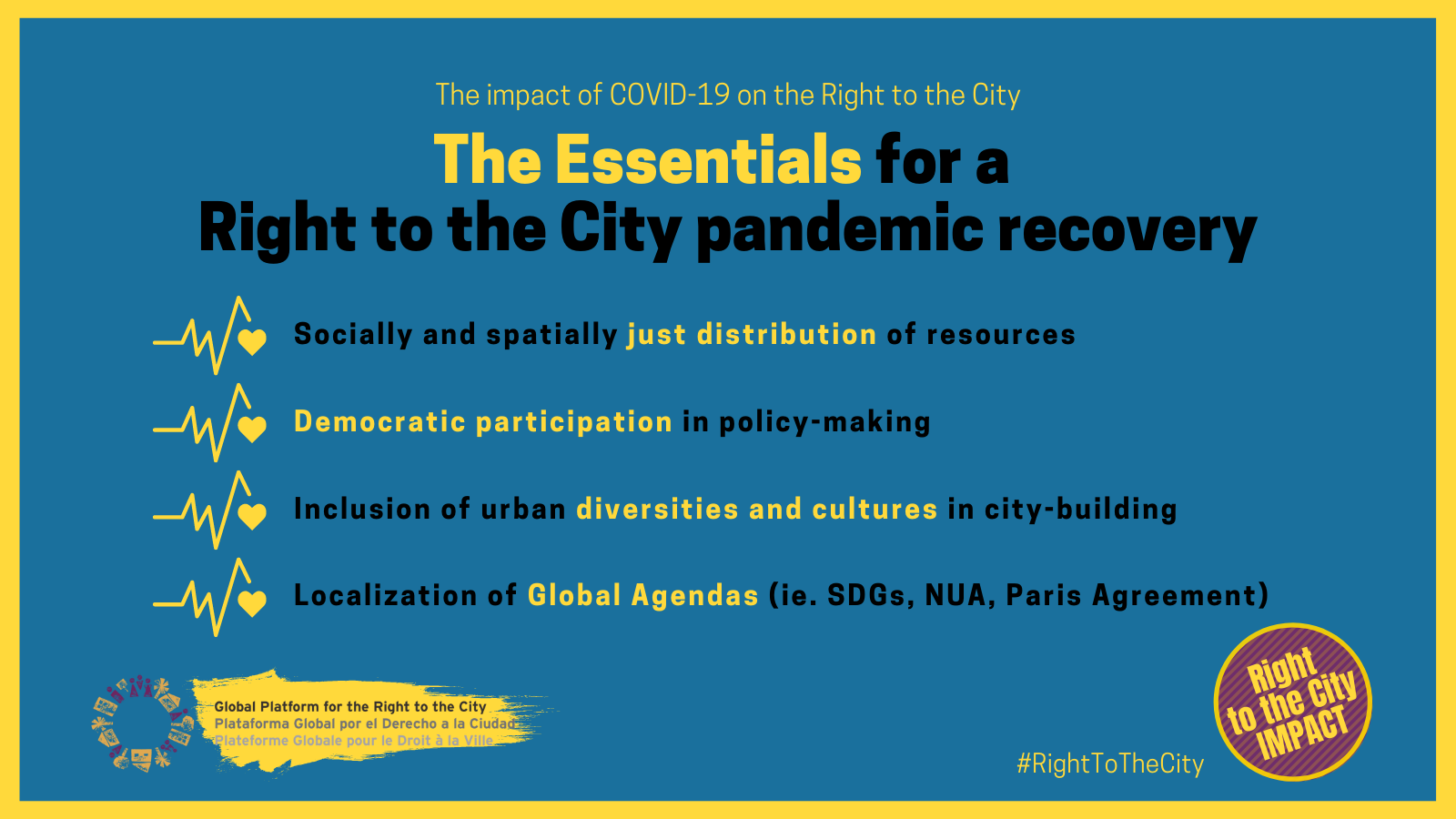
New Thematic Paper!
Since last year the Global Platform for the Right to the City (GPR2C) has embarked on the preparation of a series of thematic papers to deepen the key conceptual and programmatic contents related to the right to the city. These documents are intended to strengthen the advocacy, training, networking, and communication work of the GPR2C.
On this occassion, we are launching the thematic paper: The Impact of COVID-19 on the Right to the City. This thematic paper aims to be useful to a variety of stakeholders (civil society, governmental institutions, the private sector, academia, etc.) in their efforts to build back better cities and human settlements in post-pandemic times, by using the Right to the City as a guide for change.
Download the new Thematic Paper!
World Day for the Right to the City is officially on 31 October, but as it is Sunday, we have agreed to go online on Thursday 28 October.
All data recorded will only be used to monitor our Thematic Paper circulation and never for commercial purposes.
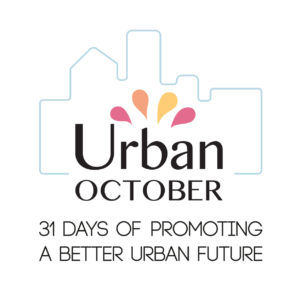
Urban October is a month of exciting meetings, discussions and events focusing the world’s attention on urban issues and sustainable development.
Individuals, organizations, cities, communities and governments at every level are encouraged to take part in activities that highlight the challenges and solutions relating to cities, towns and communities.
Every year, the month starts with World Habitat Day and ends with the World Day for the Right to the City.
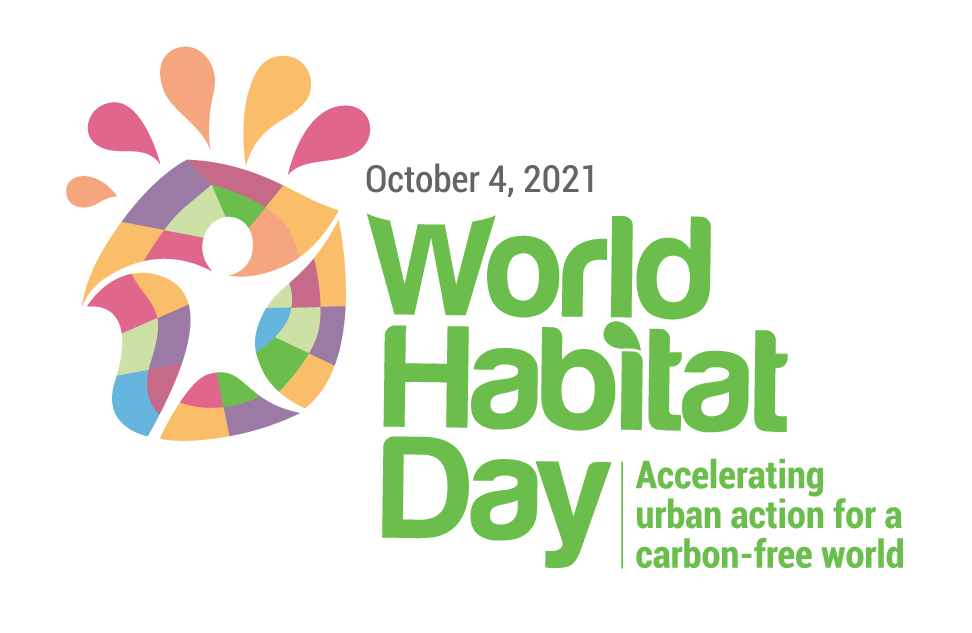
The United Nations designated the first Monday of October, this year it will be on October 4, as the annual World Habitat Day (WHD). This day highlights the state of our towns and cities, as well as the basic right of adequate shelter for all.
WHD also reminds us we all have the power and the responsibility to shape the future of our cities, towns, and communities.
This year’s theme is Accelerating urban action for a carbon-free world.
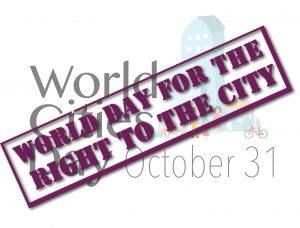
On October 31st, we celebrate the World Day for the Right to the City, reinterpreting the United Nations designation of World Cities Day.
We understand the Right to the City as: the right of all inhabitants, present and future, permanent and temporary, to inhabit, use, occupy, produce, transform, govern and enjoy cities, towns and human settlements that are just, inclusive, safe, sustainable and democratic, defined as common goods for enjoying life with dignity and peace.
The Global Platform for the Right to the City (GPR2C) aims to inspire a better future for all human settlements. The GPR2C is an open, flexible, diverse network of civil society and local government organizations committed to political action and social change through the promotion, defense and fulfillment of the Right to the City at all levels, paying special attention to people and communities affected by exclusion and marginalization.
The GPR2C brings together social movements and organizations, academics, international networks, human rights defenders, NGOs, local governments and others to collaborate towards the emergence of new emancipatory utopias and social bonds in our societies. Together, we give visibility and build dialogue with those already existing worldviews to create new possible collective imaginaries.
The values that guide the GPR2C in forming new communities of emotion and action are: cooperation, collaboration, horizontality, transparency, accountability, equity, participation, people’s empowerment and solidarity.


